Examined: Belarus' protests
Months later, the huge protests are struggling, but the crisis is not over.
MOSCOW -- It was in late summer when protesters filled Belarus' streets.
But despite four months of huge protests against the 26-year rule of its authoritarian leader, Alexander Lukashenko, for now, at least, he has stayed in power.
And as Belarus moves into winter, the massive peaceful protests that began in August following a contested election are now struggling.
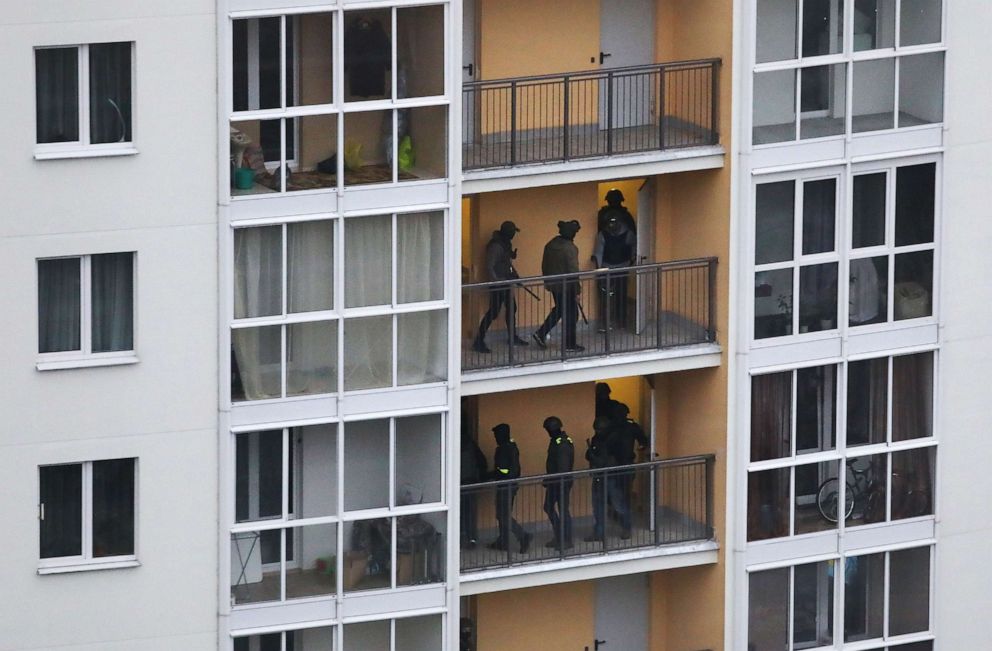
The government elite and the security forces' loyalty to Lukashenko have not faltered. Under relentless repression, including often brutal violence from police and thousands of detentions, the protests have slowly shrunk in size.
The hostility toward Lukashenko has not faded, but the struggle has become a stalemate.
In late October, in an attempt to break the deadlock, key opposition leader Svetlana Tikhanovskaya set an "ultimatum" for Lukashenko to step down or face a national strike. Although some small strikes began, they never gained momentum.
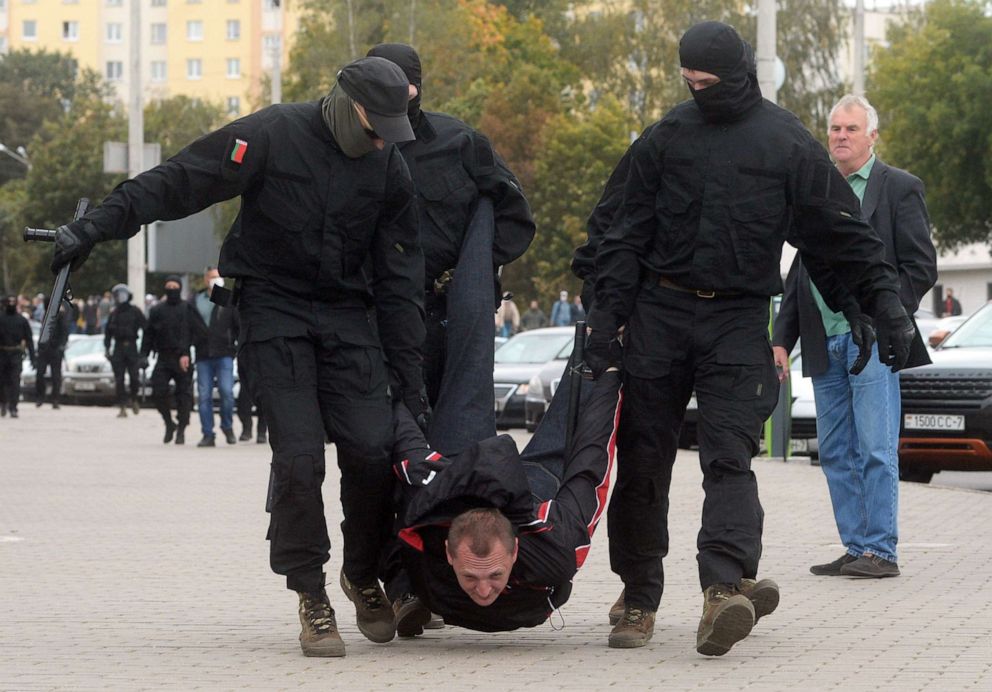
Since then, the protests have come under even greater pressure and the numbers have appeared to fade. People are still demonstrating, but there is harsh repression from riot police, who have largely abandoned the restraint the massive protests had imposed on them through the autumn.
A grim rhythm has emerged: Every Sunday, thousands of protesters gather peacefully and are attacked by riot police, who barrage them with stun grenades and then detain hundreds.
"[Lukashenko] just wants to solve it as soon as possible," Hanna Liubakova, a journalist and non-resident fellow at the Atlantic Council, said in a recent interview. "They just see that it doesn't stop. And clearly the authorities are just trying to suppress this. By using all means."
Striking factory workers have been arrested and fired. Virtually all key opposition leaders are either in jail or forced into exile abroad. Tikhanovskaya, who ran against Lukashenko in the election and has declared herself the legitimate winner, is in Lithuania. Since the start of the protests, an estimated 25,000 people have been detained, according to the United Nations Commission on Human Rights.
The security forces' willingness to remain with Lukashenko has proved vital to his survival. Although a small number of officers have resigned, there has been no mass defection.
"I, for now, don't see that that can happen," Andrey Sytko, a former senior prosecutor and Lukashenko critic.
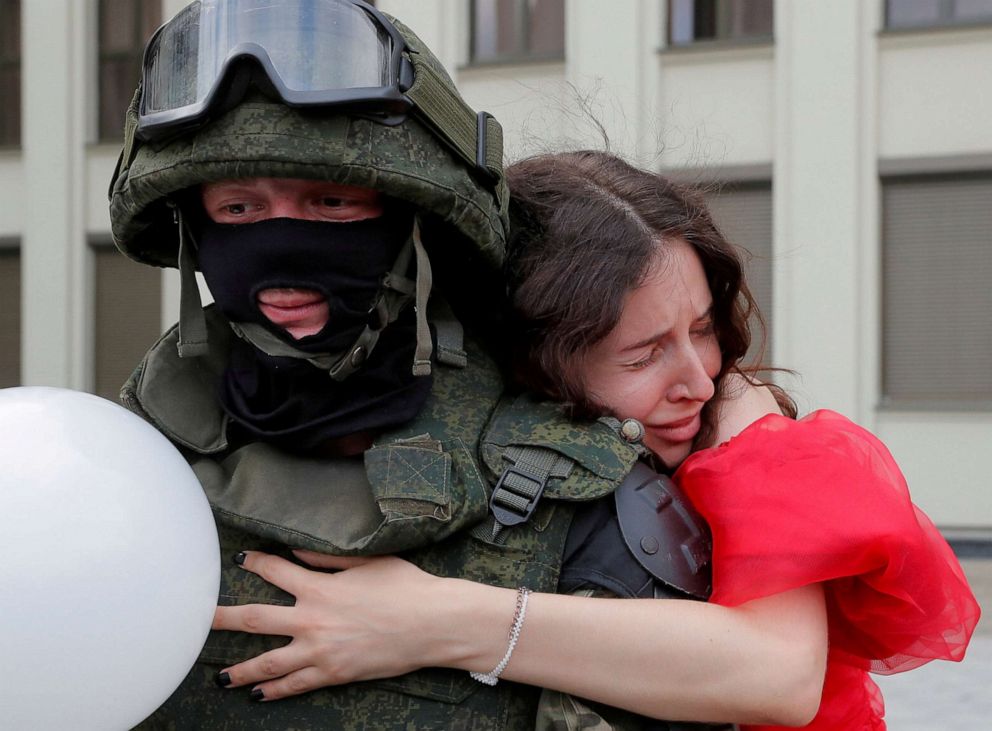
The security forces' loyalty, he said, is built on a mixture of material incentives and strong ideological preparation.
Police are comparatively well-paid, Sytko said, and many officers also live in comfortable service apartments provided by the government, which they will have to give up if they resign.
The rank-and-file officers are also heavily indoctrinated and have the idea drummed into them that if they leave they'll find themselves unemployed and homeless, he said.
"They tell them that, 'those people who are coming out to the protests, they want to kill you. They want to kill not only you, they want to come to your homes and kill your wife, your children, your mothers.'" he said.
But while the likelihood of deposing Lukashenko from the street may now seem remote, the bigger threat to his rule may come from the ally that helped him remain in power.
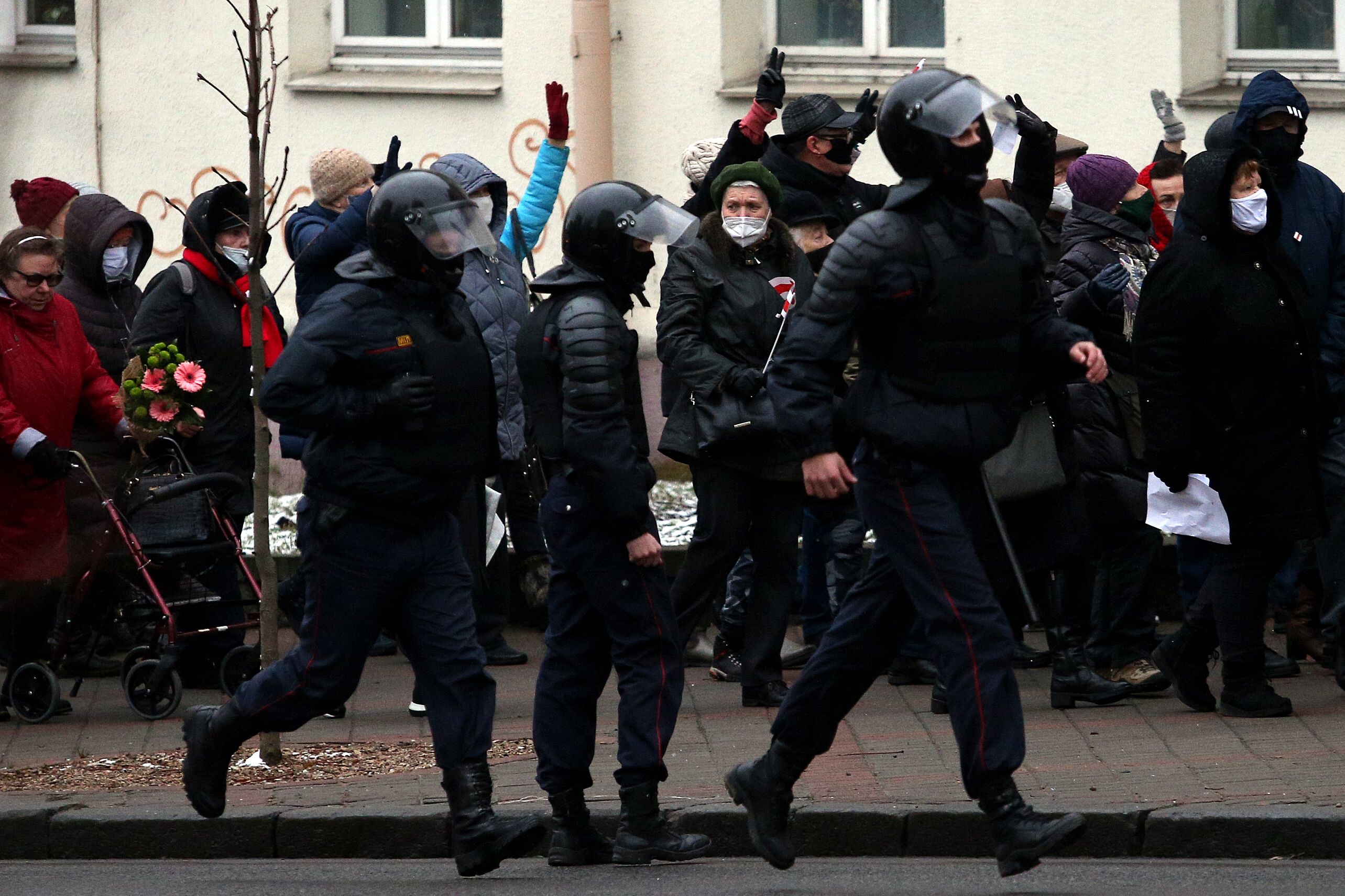
Lukashenko, in part, owes his stabilization to Russia, which has thrown its backing behind him. President Vladimir Putin threatened to send in Russian security forces and also dispatched Russian journalists to replace striking workers at Belarus' state broadcaster. Putin also threw Lukashenko a $1.5 billion financial lifeline.
But the Russian help comes with a price. Many analysts in Moscow believe that the Kremlin may want a transition in which Lukashenko hands over power to a successor acceptable to Russia -- which been a troublesome partner for the Belarusian leader.
"Lukashenko fell into a certain trap when he decided in August and September to appeal to Vladimir Putin for help," Arseny Sivitsky, director of the Center for Strategic and Foreign Policy Research told Radio Free Europe/Radio Liberty this week.
"The Kremlin decided to use the moment, the political crisis, to force a certain scenario of a transfer of power on Lukashenko," he said.
The idea of a Russian-orchestrated transfer of power became more substantive last week when Lukashenko publicly stated he would not be president under a new constitution.
Lukashenko also said that he launched what he calls discussions to produce a new constitution, backed publicly by Russia. Most of the opposition has dismissed the effort as an illusion of open dialogue.
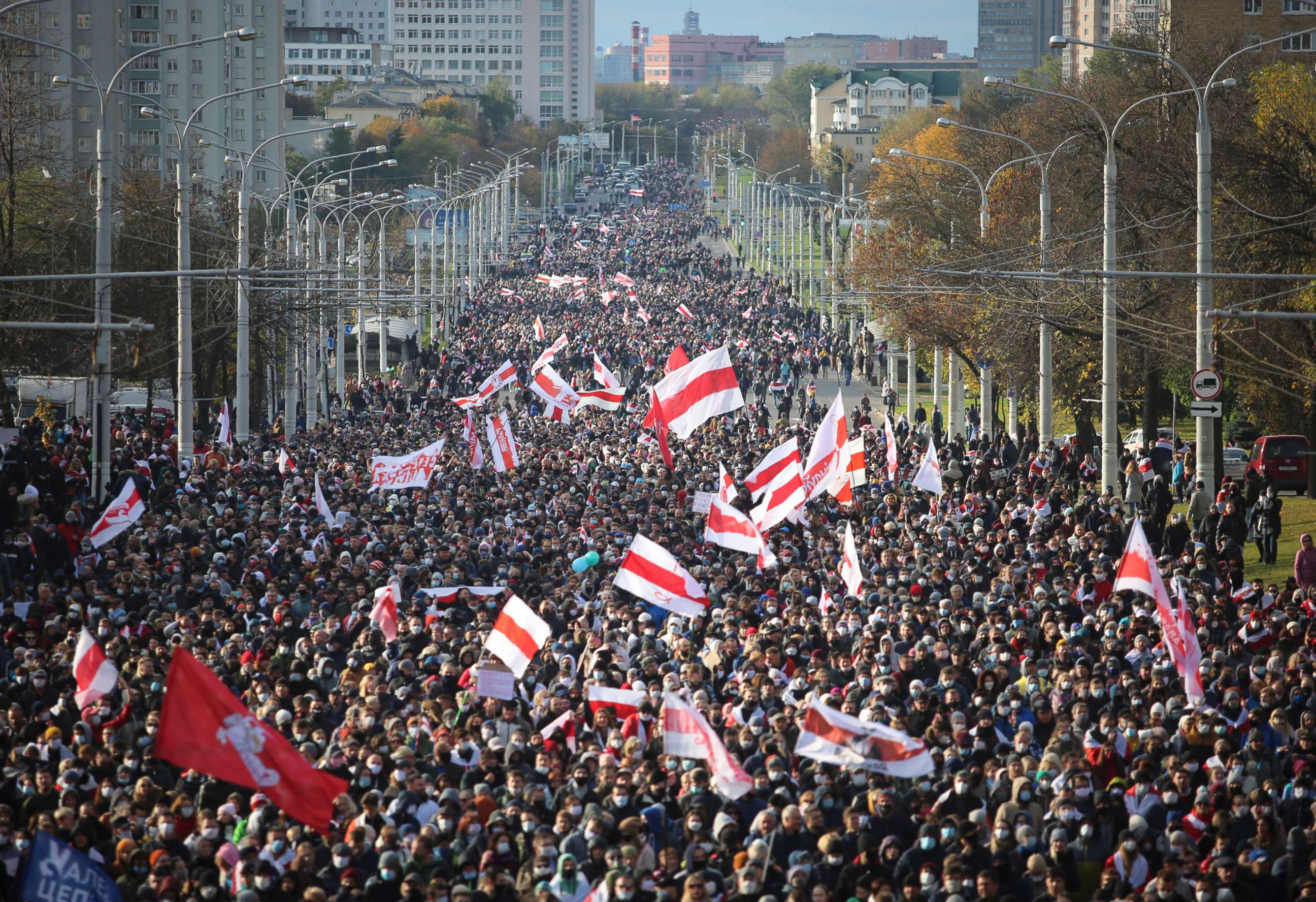
It’s not clear what Lukashenko’s end goal with the constitutional reform is. Some observers believe Lukashenko may simply rewrite the constitution to create a new position above the presidency to allow him to remain in power. But his comments last week were seen as notable.
"We should not take him at his word," Artyom Shraibman, a Minsk-based analyst and non-resident fellow at the Moscow Carnegie Center.
"At the same time I would not underestimate the statement as well. Because the pledge to step down after a new constitution is something fundamentally new. And it creates a certain level of expectations, on behalf of Belarusian society, but also on behalf of Russia," Shraibman said.
While Lukashenko survives for now, many observers believe his legitimacy is broken for good. Similar to Moscow's satellite regimes in Eastern Europe in the 1980s, while he may remain in power for quite some time, his ability to run the country in the long-term is fundamentally damaged and at constant risk, they say.
"What I've seen gives me a lot of hope," Liubakova said. "I am optimistic in a longer term because again I think this society has evolved immensely and there is no way back."